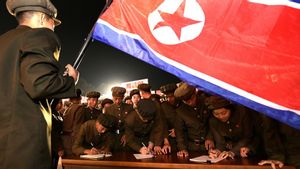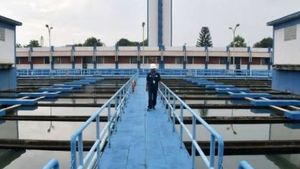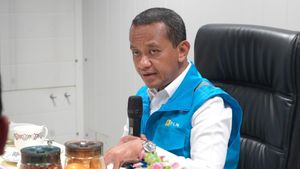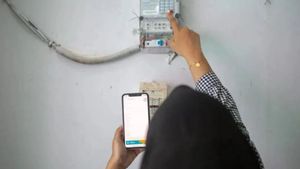JAKARTA - The need for electricity in the midst of a pandemic and post-pandemic is crucial. Various medical and non-medical treatments to prevent the spread of COVID-19, as well as ensuring the process of doing activities at home for work or study, require guarantee of electrical stability. Therefore, various groups have asked the government to emphasize the availability of electricity supply and the range of its electrification.
"Precisely with this pandemic, producers and the people expect three things, the government must continue to carry out all utility projects such as PLN, oil and natural gas," said Ahmad Wijaya, Deputy Committee for Upstream and Petrochemical Industry at the Chamber of Commerce and Industry (Kadin). quoted VOI, Thursday, April 16.
The Indonesian Chamber of Commerce and Industry assesses that the construction of power plants must continue, even in the midst of the COVID-19 pandemic. The construction of power plants is needed to supply needs, amidst Indonesia's aspiration to become the sixth largest economy in the world. Industry and the medical world need a stable and even supply of electricity.
"My suggestion is that utilities cannot stop, oil and gas (projects) cannot stop. For example, yesterday, the construction of a toll road was from 2008 to now, although it is still difficult to continue," he said.
Kadin assessed that the priority scale of these utility projects is still needed. The electricity sector is one of the sectors that must be prioritized according to a presidential instruction.
"PLN is a priority, people do not have electricity, the house must be completely dark, the roads are completely dark, the infrastructure is all chaotic. So the heart is in PLN and oil and gas, these two cannot stop according to us, because it is an obligation," he said.
Yusuf Rendy Manilet, Center of Reform on Economics (CORE) economist, assessed that the construction of power plants must be continued. With a note that the subsidy budget that has been budgeted by the government, especially for PLN, is not included in the COVID-19 pandemic reallocation budget.
He himself predicted that the demand for electricity during the pandemic would actually increase in the household consumption sector. This happens because many people have implemented a physical distancing policy so they do not leave their homes. So, the increase in demand can be compensated for from the industrial and business segments that have been temporarily suspended.
He sees that the financing of electricity development generally also uses long-term foreign loans. So the contract has been signed in advance with a relatively small loan interest.
"So that in conditions like now it is actually still relatively possible to continue," said Yusuf.
Likewise, Deputy Chairman of Commission VII DPR RI Eddy Soeparno said, in the midst of the COVID-19 pandemic like today, the stability of the electricity supply is the most crucial support. Especially with the community urged to stay at home.
"Yes, the problem of electricity availability is very important in my opinion. Because the government has advised people to do activities at home. Of course there are more and more activities that require electricity at home," he said.
Meanwhile, Chairman of the Indonesian Doctors Association (IDI) Daeng M Faqih said the government should pay special attention to electricity supply. Especially for hospital needs. Because, if the electricity flow is disrupted, it will affect health services for patients and result in not optimal handling of COVID-19 patients and preventing its spread.
"The government, in this case PLN, must be able to ensure that the electricity supply for hospitals and health centers is not disrupted," he said.
Daenk explained, if the stability of the electricity supply is disrupted, the medical equipment in the hospital will also not function. "Generators or electricity producers cannot be relied on forever to supply electricity. Alhamdulillah, so far no hospital has problems with electricity supply, everything is still safe," he exclaimed.
During the first quarter of 2020, the realization of PLN's own electricity sales was 61.15 Terawatt Hours (TWh). This number grew 4.61 percent compared to the realization in the first quarter of 2019 which amounted to 58.46 TWh, although not as fast as the same period last year which grew by 5.49 percent.
Due to the impact of the pandemic, electricity consumption in the industrial and business segments has indeed slowed down. However, electricity growth for the household segment in the first quarter of 2020 actually increased by 7.54 percent, due to the work from home (WFH) policy.
For information, electricity consumption in DKI Jakarta alone, as the epicenter of the spread of COVID-19, reached 32,779.2 Giga watt hour (Gwh) with 4.4 million subscribers. The largest electricity consumption in Jakarta is channeled to meet household needs, reaching 13,199 Gwh or 19.57% of total consumption.
The English, Chinese, Japanese, Arabic, and French versions are automatically generated by the AI. So there may still be inaccuracies in translating, please always see Indonesian as our main language. (system supported by DigitalSiber.id)













